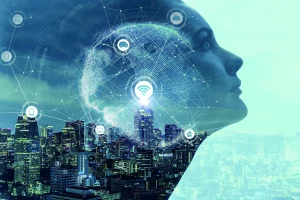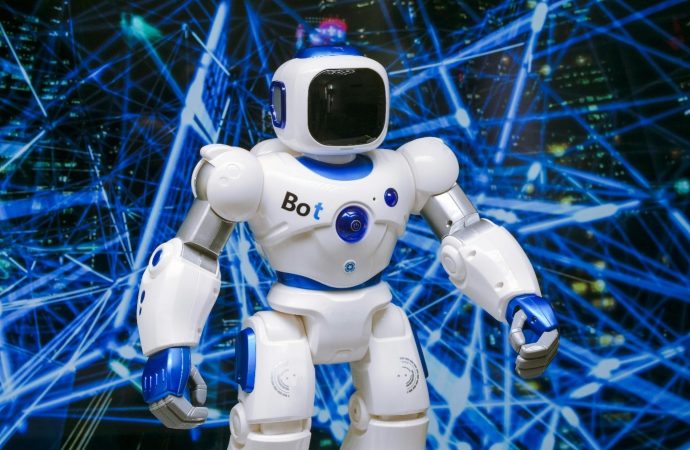The Rise of AI-Powered Personal Assistants In the past decade, the rapid development of artificial intelligence (AI) has revolutionized various aspects of technology and everyday life. Among these advancements, AI-powered personal assistants have emerged as one of the most influential innovations. These digital assistants, such as Apple’s Siri, Amazon’s Alexa, Google Assistant, and Microsoft’s Cortana,
The Rise of AI-Powered Personal Assistants
In the past decade, the rapid development of artificial intelligence (AI) has revolutionized various aspects of technology and everyday life. Among these advancements, AI-powered personal assistants have emerged as one of the most influential innovations. These digital assistants, such as Apple’s Siri, Amazon’s Alexa, Google Assistant, and Microsoft’s Cortana, are designed to assist users in managing their daily tasks, accessing information, and controlling smart home devices. This article explores the rise of AI-powered personal assistants, their impact on society, and the future potential of this technology.

Yandex
The Evolution of Personal Assistants
Early Beginnings
The concept of personal assistants dates back to the early 2000s with the introduction of simple voice recognition software. These early systems had limited capabilities and were primarily used for basic tasks such as dialing phone numbers and setting reminders.
The Advent of AI
The integration of AI into personal assistants began around 2011 with the launch of Apple’s Siri. Siri’s ability to understand natural language and perform a wide range of tasks marked a significant leap forward. This was followed by the introduction of Google Now in 2012, which offered contextual information based on user behavior, and Amazon’s Alexa in 2014, which pioneered the smart home integration of personal assistants.
Key Features of AI-Powered Assistants
Natural Language Processing (NLP)
One of the most significant advancements in AI-powered assistants is their ability to understand and process natural language. NLP allows these assistants to interpret user commands, respond appropriately, and even engage in complex conversations.
Machine Learning
Machine learning algorithms enable personal assistants to learn from user interactions and improve their responses over time. This continuous learning process allows for a more personalized and efficient user experience.
Integration with Smart Devices
AI-powered assistants are not just limited to smartphones; they are integrated into various smart devices, including speakers, thermostats, and home security systems. This integration allows users to control their environment through voice commands.
Task Automation
Personal assistants can automate repetitive tasks, such as scheduling meetings, sending messages, and setting reminders. This automation saves users time and reduces the cognitive load of managing daily activities.
Increased Efficiency
AI-powered assistants significantly enhance productivity by handling routine tasks and providing quick access to information. This increased efficiency allows users to focus on more important activities.
Accessibility
For individuals with disabilities, AI-powered assistants provide a valuable tool for improving accessibility. Voice commands can replace physical interactions, making technology more inclusive.
Entertainment and Lifestyle
From playing music and providing weather updates to offering cooking recipes and managing fitness routines, AI-powered assistants have become an integral part of modern lifestyle and entertainment.
Challenges and Concerns
Privacy and Security
The use of AI-powered assistants raises significant privacy and security concerns. These devices often require access to personal data and constant connectivity, which can be vulnerable to hacking and data breaches.
Dependency and Over-reliance
There is a growing concern about the potential for users to become overly reliant on AI-powered assistants, potentially leading to a decrease in critical thinking and problem-solving skills.
Ethical Considerations
The ethical implications of AI-powered assistants include issues related to data usage, consent, and the potential for biased decision-making based on the data they are trained on.
Future Prospects
Advancements in AI Technology
The future of AI-powered assistants is promising, with ongoing advancements in AI technology expected to enhance their capabilities further. Improvements in NLP, machine learning, and contextual understanding will lead to more intuitive and human-like interactions.
Integration with Augmented Reality (AR)
The integration of AI-powered assistants with augmented reality (AR) technologies could revolutionize how users interact with their environment, providing real-time information and assistance through AR interfaces.
Expansion into New Domains
AI-powered assistants are likely to expand into new domains, including healthcare, education, and professional services, offering specialized assistance and support in various fields.
Analysis Table
| Feature | Description | Current Impact | Future Potential |
| Natural Language Processing (NLP) | Enables understanding and responding to user commands | High | Very High |
| Machine Learning | Allows learning from user interactions to improve responses | High | Very High |
| Integration with Smart Devices | Connects with various smart home devices for voice control | Moderate | High |
| Task Automation | Automates routine tasks such as scheduling and messaging | High | Very High |
| Privacy and Security Concerns | Risks associated with data access and connectivity | High | Moderate (with advancements) |
| Dependency and Over-reliance | Risk of decreased critical thinking and problem-solving skills | Moderate | High |
| Ethical Considerations | Issues related to data usage, consent, and biased decision-making | High | Moderate |
Comparative Table
| Personal Assistant | Developer | Key Features | Unique Selling Points |
| Siri | Apple | NLP, machine learning, task automation | Integration with Apple ecosystem |
| Alexa | Amazon | Smart home integration, voice shopping, skills | Extensive smart device compatibility |
| Google Assistant | Contextual understanding, integration with Google services | Superior search capabilities | |
| Cortana | Microsoft | Productivity tools, integration with Windows OS | Seamless integration with Microsoft Office |
Conclusion
The rise of AI-powered personal assistants represents a significant milestone in the evolution of technology. These intelligent systems have transformed how we interact with our devices, manage our daily tasks, and access information. Despite the challenges and concerns, the future of AI-powered assistants is bright, with continuous advancements poised to further enhance their capabilities and integration into various aspects of our lives. As technology evolves, so too will the ways in which AI-powered assistants can assist us, making our lives more convenient, efficient, and connected.
















